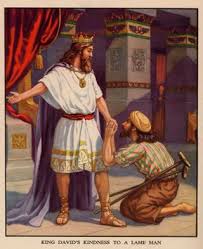“There was thick darkness in all the land of Egypt three days…but all the children of Israel had light in their dwellings.” Ex 10:22-23
We underestimate the power of the covenant God has sealed with us through the shed blood of the Lamb to our own hurt. During this holy week, as we reflect upon the events surrounding the single most profound act in all history, I am compelled to recount the glorious benefits of the cross revealed in the very first Passover. In particular, I will highlight the concept of separation that was a major theme then and will once again play a central role in the days before Jesus’ return (cf. IS 60:1-3).
In the leadup to that fateful night, we find God was honoring His covenant in numerous ways. Despite intense affliction, the population of God’s people multiplied dramatically. Remarkably, “the Hebrew women [were] not like the Egyptian women”, giving birth “vigorously”, quickly, and safely even before the midwives could get there (Ex 1:19).
As judgment fell on Egypt, as plague after plague bombarded the land, the mercy of God prevented the swarms of gnats and locusts, the curses of the frogs and boils, and the pelting of the hail from marauding God’s favored ones. He vowed: “I will deal differently with the land of Goshen where my people live…so that you will know that I, the Lord, am in this land. I will make a distinction between my people and your people…” (Ex 8:22-23).
Although the covenant was freely available to all of Jacob’s seed, and yet “every man shall take for himself a lamb” (Ex 12:3). Appropriating the blessings was not automatic. Each man had to select and slaughter an unblemished lamb and apply the blood to the doorposts and lintel of his home in order to be afforded defense from the destroyer who came to strike all the firstborn in the land. While piercing screams of grief echoed from street to square as the angel of death passed over Egypt, the Hebrews slept peacefully in preparation for their long-awaited escape from bondage at the break of dawn.
The flight would have been short-lived if God had not intervened yet again with the cloud by day and the pillar of fire by night. As Pharaoh’s chariot-borne army hotly pursued the fleeing Israelites, God erected an impregnable hedge around them. Scripture records: “The cloud gave light to the Israelites, but made it dark for the Egyptians, and during the night they could not come any closer” (Ex 14:20). Hours later, when the army attempted to pursue Moses’ horde into the parted Sea, the final and most dramatic separation occurs when the waters which had walled up for the Hebrews collapsed to annihilate every soldier and beast not divinely garrisoned by the great I AM.
The exodus saga convincingly reveals God as a Master in the art of separation. So much more than a grand Sunday school tale, we who are wise are brought face to face with one of the timeless truths that will keep us–His children, the benefactors of His covenant–confident and courageous as thick darkness once again covers the earth in the Last Days.
Beloved, we are like 21st century Goshenites. As adversity pummelled and perplexed the Egyptians, the region where the Israelites lived was under a huge canopy of protection. As Pharaoh’s heart grew harder and resistance intensified, God “multiplied [His] signs and wonders in the land” (Ex 7:3) through the faith and persistence of His servant Moses. As sin and wickedness abounded in Egypt, grace was magnified upon Goshen all the more. Plagues, pestilences, disasters all wreaked havoc on the shadowless homes of those who did not believe while the lamps continued to burn brightly inside the dwellings of those whose doorframes were sprinkled with redemption blood. As darkness thickened into gross darkness, as it had been for the Hebrew children standing at the brink on the Sea’s shore, so shall it be for us who have fortuitously been grafted into God’s covenant with Abraham. The Sun of Righteousness shall arise upon us.
There is restoration and refreshment in His wings. Our church is a sign of this separation promise: not a single case of COVID has been recorded among our more than five thousand members. God had marked His people throughout their legendary sojourn out of bondage and into their destiny. Now, as this sanctified people looked back at bodies strewn next to swords, armor, and broken chariots upon the shores of the Red Sea, an outline of a seventy-palm-tree-oasis came into focus on the horizon before them. As the blood of the Passover Lamb had purchased their salvation, God affirmed one last covenant by-His-stripes benefit as they dipped their tired feet in pools of water underneath sunset painted skies at the end of that very long day. He said:
“If you diligently heed the voice of the Lord your God and do what is right in His sight…I will put none of the diseases on you which I have brought on the Egyptians. For I am the Lord who heals you.” Ex 15:26
Have a Joyous Passover, and Happy Easter.


